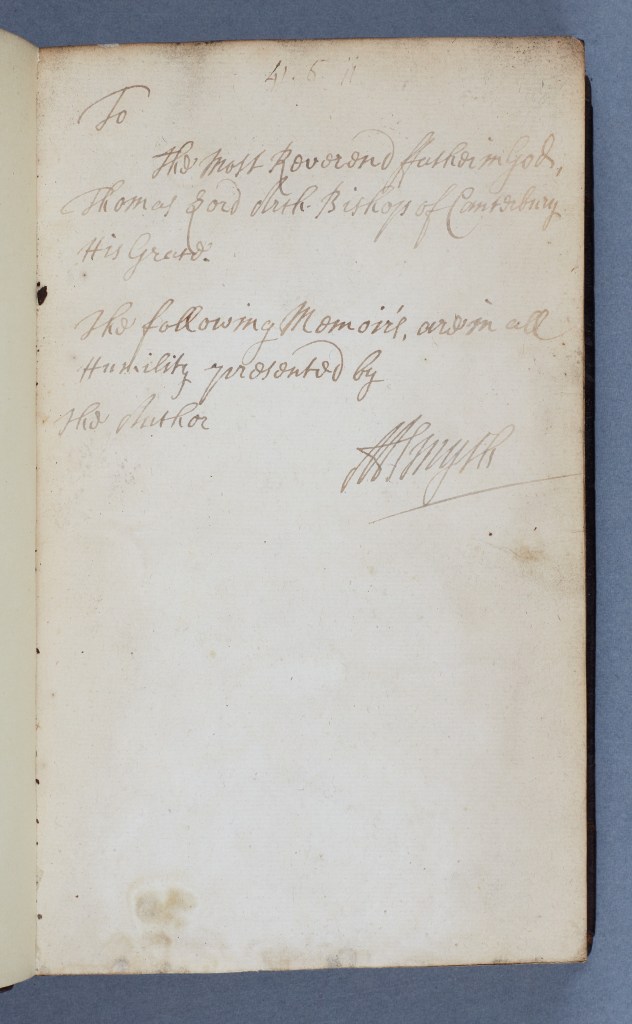By Richard Palmer
The project to catalogue the Act Book of the Court of Arches from 1690 to 1693 (Arches A 20), generously supported by the Friends of Lambeth Palace Library, has been successfully completed. A total of 36,547 acts of court have now been recorded and dated for the first time and the entire catalogue of the Arches archive for the years 1660-1693 has been corrected and enhanced.
During these years marriage and divorce again accounted for the most dramatic cases heard by the Court. Here we meet Lucy Hooper, the widow of a prosperous coachmaker, who was drugged with a dish of chocolate, and married while insensible. Another case concerned Butler Chamberlaine, the feisty mistress of the privateer Thomas Hewetson, who sailed and traded with him in the Caribbean, pausing only to deliver their child in New York. We also meet Rachel, Lady Peshall, who set herself up as a pawnbroker after leaving her husband; Samson Bound, suffering from the clap and putting the blame on his wife Elizabeth; Rachel Graves, a Southwark tavern-keeper, who was tricked into marriage by Matthew Smith, a government spy; and Sir John Aubrey who married a rich widow and rapidly divorced her, retaining her Buckinghamshire estate.


The same Matthew Smith wrote Memoirs of a Secret Service, published in 1699. The copy at Lambeth Palace Library (KA462.S6) was donated by the author to Archbishop Thomas Tenison.
Less dramatic but not without interest were the numerous testamentary suits before the Court. In two cases the defendants were the King and Queen, who claimed the estate of Dorothy Manby on the grounds that she died intestate and without relatives. The court ruled in favour of the crown after dismissing bogus relatives in an identity parade. Noncupative wills, spoken rather than written, were a constant source of litigation. John Lewis left all his possessions to Lucy Moulton, a fellow servant at Powderham Castle, ‘and taking her by the hand said I seal it with a kisse and so kissed her’. The Court upheld her claim, but in other instances it found nuncupative wills to be fictitious. Many probate cases came to the Arches from its sister court, the Prerogative Court of Canterbury. Almost 7,000 entries in the catalogue have now been linked to the wills, held in the National Archives, to which they relate.
To learn more about the Court of Arches, see our Digital exhibition, Moral and Material Decay: four centuries of the Court of Arches
